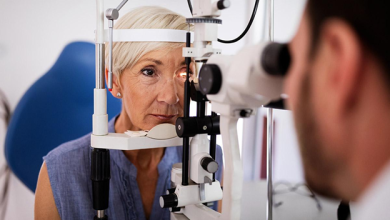Alcohol Abuse: Recognizing the Signs and Breaking Free from Dependency

Alcohol misuse represents a significant challenge that impacts millions globally. It can adversely affect physical health, mental wellness, and interpersonal relationships. Identifying the indicators of alcohol misuse is the initial step toward recovery. With appropriate support and resources, it is feasible to overcome dependency.
What is Alcohol Abuse?
Alcohol abuse occurs when an individual consumes alcohol in excessive amounts and is unable to regulate their drinking behavior. This can result in a range of health, social, and legal complications. Unlike alcohol dependence, individuals who struggle with alcohol abuse may not experience physical addiction, yet they still partake in detrimental drinking habits.
Signs of Alcohol Abuse
Recognizing the warning signs can help prevent long-term damage. Common symptoms include:
- Drinking frequently, even when it causes problems at work, home, or school
- Difficulty in controlling or reducing alcohol intake
- Drinking in risky situations, such as before driving
- Building a high tolerance for alcohol
- Experiencing withdrawal symptoms like nausea, sweating, or anxiety
- Continuing to drink despite negative consequences
Effects of Alcohol Abuse
Alcohol abuse can have severe health and social consequences:
- Physical Health Issues: It can lead to liver disease, high blood pressure, and heart problems.
- Mental Health Problems: Anxiety, depression, and memory loss are common among those who abuse alcohol.
- Relationship Struggles: Alcohol abuse often causes conflicts with family and friends.
- Legal and Financial Issues: Drunk driving, job loss, and financial instability are frequent outcomes.
Understanding Alcohol Dependency
Alcohol dependency is a more severe form of alcohol abuse. A person becomes physically and emotionally reliant on alcohol. Breaking free from dependency requires professional help and strong support.
How Technology Supports Recovery
Overcoming alcohol abuse is challenging, but technology can make the journey easier. One helpful tool is Soberlink, a remote alcohol monitoring system. It helps individuals stay accountable by tracking their alcohol intake in real time. Many people in recovery use Soberlink to rebuild trust with their loved ones and maintain sobriety. If you are looking for a reliable monitoring solution, you can study Soberlink reviews to understand how it has helped others in their recovery journey.
Steps to Break Free from Alcohol Dependency
Recovering from alcohol abuse requires commitment and the right approach. Here are some steps to take:
- Acknowledge the Problem: The first step to recovery is accepting that alcohol is affecting your life.
- Seek Professional Help: Doctors, therapists, and support groups can provide guidance.
- Build a Support System: Surround yourself with people who encourage and support your recovery.
- Join Support Groups: Organizations like Alcoholics Anonymous (AA) offer a safe space to share experiences and gain support.
- Adopt Healthy Habits: Regular exercise, proper nutrition, and meditation can help improve mental and physical health.
- Monitor Your Progress: Keeping track of drinking habits and setting recovery goals can help you stay on the right path.
The Role of Family and Friends in Recovery
Support from loved ones is crucial in overcoming alcohol abuse. Family and friends can:
- Encourage treatment and recovery efforts
- Provide emotional support
- Help create a sober-friendly environment
- Celebrate small victories during recovery
Final Thoughts
Alcohol abuse can take a toll on health, relationships, and overall well-being. However, recovery is possible with the right support and resources. Recognizing the signs early, seeking professional help, and using tools like Soberlink can make the journey smoother. If you or someone you know is struggling with alcohol abuse, take the first step today. A healthier, alcohol-free life is within reach.




